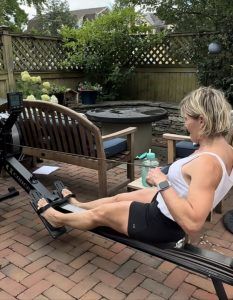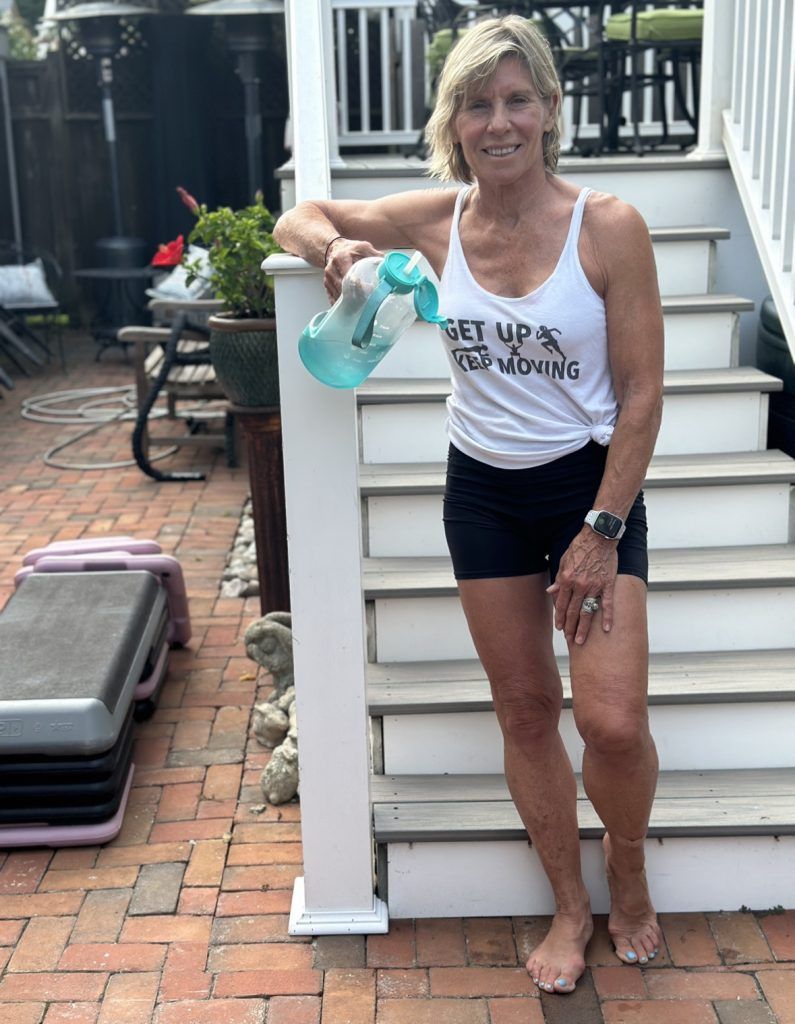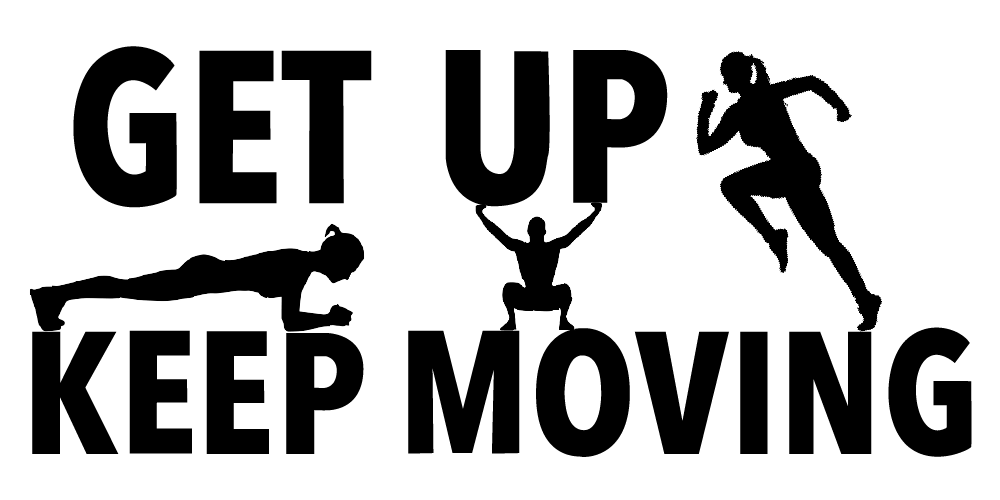Hi Friends~
It’s been so HOT!

Keeping cool in general is a challenge this summer, so if you’re training, indoors or outside you’re sweating up a storm for sure.

The puddle on the floor under your spin bike or rowing machine isn’t fat or calories. It’s sweat, perspiration, fluid, containing electrolytes (such as sodium, potassium, calcium, and magnesium) and trace minerals, all of which have to be replaced for performance, and health.
If you’re tempted to get on the scale after a sweat session, and you see a few pounds gone, please do not think that you’ve “lost weight”.
According to this scholarly article from the Journal of Thermal Biology:
The human eccrine sweat gland is central to the evolution of the human genus, permitting an enormous thermoregulatory sweating capacity that was essential to the human niche of high physical activity in open, hot, semi-arid environments.
Your human sprinkler system does a great job getting you wet, then you cool down as you move through the air around you.
It’s literally critical not to lose too much fluid (along with the other substances in sweat), so choose the coolest time of day to work out, and have a plan to replenish through a workout (or run, row, or ride), and especially afterward.

Post workout replenishment – fluids and everything else too:
- Hydration: Hydration is key after a workout. Water helps transport nutrients to cells and supports various bodily functions. Drink water consistently during your workout and afterward, and include electrolyte-rich beverages if your workout is particularly intense or prolonged.
- Protein Intake: Consuming protein after a workout helps repair and build muscle. Protein shakes are a great, quick option. I don’t usually feel like eating a meal after a workout, so adding whey protein powder like this Prozis 100% Whey Protein to kefir mixed with Cheribundi tart cherry juice hits the spot and I like it! Aim for about 20-30 grams of protein within an hour after your workout.
- Carbohydrates: We need carbs! Carbohydrates replenish glycogen stores, which are depleted during exercise. These energy stores are essential for future workouts. A balanced ratio of carbs to protein (around 3:1 or 4:1) is generally recommended for optimal recovery.
- Healthy Fats: Incorporate healthy fats – if you do feel like eating a meal, go for avocados, olive oil, and nuts are good sources.
- Timing: Aim to eat your post-workout meal within 1-2 hours after exercise, some even recommend within 45 minutes as your body is more receptive to nutrient absorption during this window. This helps kickstart the recovery process
- Stretching and Cool Down: Don’t skip the cool-down and stretching phase after your workout. This helps improve flexibility, prevent muscle tightness, and reduce the risk of injury.
- Rest and Sleep: Adequate sleep is crucial for recovery and overall health. 7-9 hours of quality sleep is recommended each night. Good luck with that one. I go to bed around 10pm, and about 5 hours later I suddenly wake up, then breathing exercises help me to get at least 2 more hours. Evening meditation, even for a few minutes helps. I’m trying to avoid pharmacological sleep remedies, but I think magnesium helps a bit. I think a sleep tracker would make me feel worse if I’m not getting enough “quality” sleep. If you have any great solutions for extended sleep, let me know.
- Post-workout nutrition is just one part of the equation. Hydration, proper warm-up and cool-down, sleep, and consistent training all contribute to a successful recovery and overall fitness progress. If you have specific dietary needs or health concerns, consult a dietitian. As a certified Precision Nutrition Coach I can help.
Stay cool my friends!
Onward~
Polli




